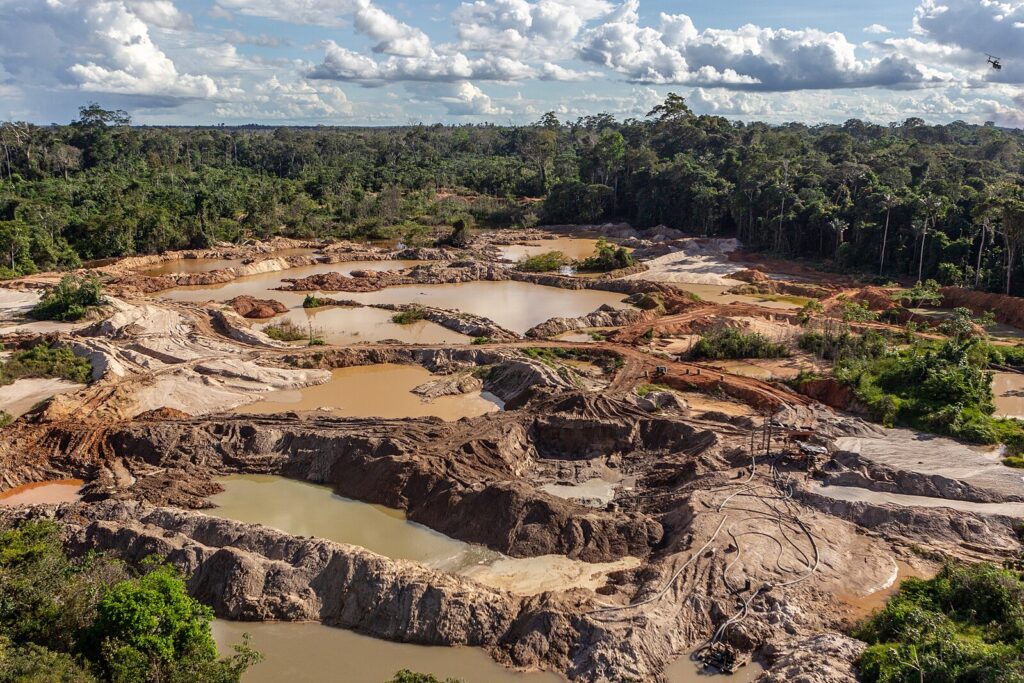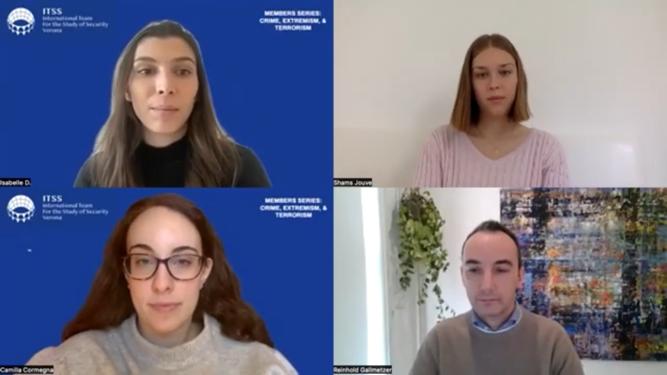Author: Rabiah Ryklief - Central & South America Team
Latin America's rich biodiversity and vast natural resources have unfortunately attracted a destructive force: Eco-Mafias. These highly organised transnational criminal groups engage in the illegal extraction and exploitation of natural resources for illicit profit. Their activities cause widespread ecological degradation, posing a significant threat to the region's environmental security and, consequently, global climate security.
The Rise of Eco-Mafias
Latin America’s environmental security is deeply intertwined with the exploitation of its natural resources. From the colonial plunder of precious hardwoods like mahogany to the 20th century's surge in deforestation for government-backed infrastructure and cattle ranching, exploitation has driven significant habitat loss and disrupted vital ecological processes. This ongoing struggle has entered a particularly dangerous phase with the rise of Eco-Mafias.
Fueled by the confluence of the war on drugs, insatiable global demand for resources, and environmental crime's lucrative ranking as the third most profitable illegal activity, these transnational organised criminal groups pose a grave threat. While some countries have implemented environmental legislation and protected areas, the allure of the Amazon's vast resources has proven difficult to resist.
The remote nature of the Amazon rainforest, coupled with limited enforcement and vulnerabilities to corruption within government agencies, creates fertile grounds for these illicit networks to flourish. Unlike traditionally trafficked commodities - such as drugs, arms, or humans - timber and minerals can be laundered with relative ease, entering the legal commercial market to provide a cloak of legitimacy. Further obfuscation is achieved by placing funds in jurisdictions far removed from the original crime, hindering prosecution and facilitating tax evasion. This minimises risk while maximising profits, making environmental crimes more attractive.
In this context, the establishment of Eco-Mafias in Latin America signifies an escalation in the struggle against environmental insecurity. Their focus on high-value resources like timber, gold, and minerals presents a significant threat to ecosystems in hotspots like Brazil, Colombia, Peru, and Central America.
The Devastating Impact
Eco-mafia activity in Latin America inflicts a devastating and multifaceted assault on the region's environment. The environmental crimes associated with these activities include legal transgressions, operating within protected areas and indigenous territories, unauthorised dredging, and altering natural river flows. These actions cause direct physical destruction of ecosystems and diminish the availability of vital natural resources.
Illegal logging caters to a booming international market for valuable hardwoods. Estimates suggest that up to 80% of logging activities in Brazil and 60% in Peru are illegal. This rampant exploitation translates to land grabs, deforestation, and the decimation of vital habitats - key drivers of biodiversity loss. While Latin America is home to 40% of the world's biodiversity, populations have declined rapidly by 89% since 1970.
Illegal mining operations leave a trail of toxic waste and polluted waterways in their wake. Illegal gold mining is a major concern, accounting for 86% in Venezuela, 80% in Colombia, and 70% in Ecuador. Small-scale, illegal gold mining is the second-largest source of global mercury pollution, releasing tons of mercury into Amazonian rivers and lakes each year. This contamination reaches levels up to 34 times above safe limits, posing a severe threat to aquatic ecosystems and ultimately reaching human populations through the food chain.
Deforestation and forest degradation driven by Eco-Mafia activities surged by 25% in the first half of 2020, significantly contributing to climate change emissions. The continuing loss of vital carbon sinks like the Amazon rainforest weakens the globe’s ability to mitigate climate change impacts, exacerbating extreme weather events.

The Environmental Security Landscape
Latin America faces a complex challenge in securing its environment. Peace, development, and security – the cornerstones of any nation – are under threat from the illicit activities of Eco-Mafias. Transnational organised crime thrives on diversification, and Eco-Mafias have capitalised on this trend, exploiting weaknesses in governance, particularly during local conflicts.
Latin America's political volatility and history of conflict create fertile ground for Eco-Mafia activities. Weak governance and instability provide a haven for these criminal groups to exploit natural resources with impunity. This highlights the critical role that combatting environmental crimes plays in preventing and resolving conflicts. Conflict zones, often riddled with corruption and influenced by powerful political and military figures, offer the most lucrative opportunities for Eco-Mafias.
The environmental crimes committed by Eco-Mafias carry a heavy price tag for peace, sustainable development, and security. When these groups operate in fragile regions marked by violence and instability, it presents a critical development challenge. The destruction of ecosystems and depletion of natural resources directly undermines efforts to alleviate poverty - a key socio-political issue across much of Latin America. The cycle becomes self-perpetuating; continued or renewed conflict fuels environmental crimes, further undermining development prospects.
Illegal mining also attracts a constellation of other criminal activities. Slave labour, forced prostitution, and human trafficking become entangled with environmental crimes creating opportunities for violent clashes with local communities who resist. The overall result is a devastating erosion of peace and human security in rural areas with limited governance.
The illicit revenue generated from the exploitation of natural resources is staggering, accounting for nearly 40% of conflict and terrorism financing globally. Even more alarming is the fact that environmental crimes contribute 64% of illicit and organised crime finances. In essence, Eco-Mafias not only promote environmental insecurity, but also pave the way for the emergence of other security threats, such as non-state armed groups and terrorist organisations that exploit environmental crimes for their own nefarious ends.
Conclusion
Latin America's fight for environmental security hinges on dismantling the complex web of Eco-Mafias. Their presence exacerbates existing vulnerabilities, jeopardising the region's pursuit of durable peace, sustainable development, and long-term security. A multi-pronged approach is essential, tackling not just the environmental damage they inflict, but also the underlying social, political, and economic drivers that fuel their activities.
International cooperation, strengthened environmental law enforcement, and investment in sustainable development initiatives offer a path forward. By breaking this destructive cycle, Latin America can achieve environmental security and safeguard its irreplaceable ecosystems for generations to come.

